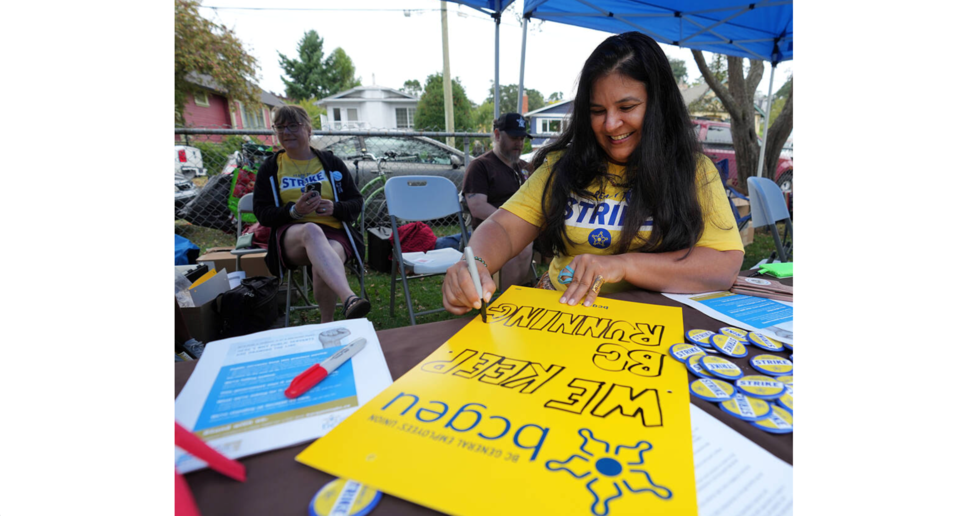As B.C. government workers launch their first day of strike action, a different kind of labour dispute affecting provincial services is playing out in historic fashion on Vancouver Island.
Transit workers in the Cowichan Valley are approaching their seventh month of job action, collapsing BC Transit service in the mid-Island region. At more than 200 days, it is the longest transit strike in British Columbia history.
The lengthy Cowichan dispute and the strike action that began Monday by the BC General Employees’ Association (BCGEU) are entirely different affairs.
But the Cowichan case does highlight the extreme reluctance the BC NDP government has in legislating an end to labour conflicts, and how much rope it’s willing to give to the idea that lasting deals are only found at the bargaining table.
The workers in Cowichan are actually employed by a private company called Transdev, contracted by BC Transit to provide bus service to the region. They want wages and annual increases on par with Victoria drivers, as well as better access to washroom facilities on their routes. The company insists it has made an offer comparable to other cities.
The government has resisted calls to intervene, even as the Cowichan Valley Regional District highlighted the impact a lack of bus service has had on the region’s most vulnerable residents, including lost jobs and missed medical appointments.
Instead, Labour Minister Jennifer Whiteside installed a mediator, whose recommendations the workers rejected, and then offered binding arbitration, which the workers also refused. Whiteside is now considering a second mediator.
Short of crafting back-to-work legislation, there’s not much else the government can do other than let the pressure build on both sides to compromise.
Whiteside, a longtime trade unionist and former lead negotiator for the Hospital Employees’ Union, is loath to have the province impose terms. It’s a philosophy core to New Democrats, who have close ties to organized labour and bitter memories of the previous BC Liberal government running roughshod over collective bargaining.
“The right to a strike vote and to initiate job action can be, and is, a normal part of the collective bargaining process,” acting deputy premier Mike Farnworth said Friday, after the BCGEU served its strike notice.
“But we also know that the best agreements are always reached in bargaining. And negotiations are often complicated, but the best agreements are achieved at the negotiating table.”
The BCGEU strike is more complex, involving more than 36,000 government, health, education, corrections, liquor and social workers. The two sides are far apart on wages. Picket lines could, eventually, severely disrupt government services to millions of British Columbians.
New Democrats are not likely to give as much rope to the BCGEU as they have to the half-year labour dispute playing out in Cowichan, given the stakes.
But they also don’t want to end up becoming the BC Liberals, who undercut the bargaining power of organized labour because they were always so quick to take away the protected right to strike.
It’s why you’ll see an NDP government more willing to let a strike unfold than you might expect. It will let the BCGEU blow off steam on the picket line, drain its financial reserves and in some cases deeply annoy the general public with service reductions in the weeks ahead.
All of which could make for a long, long fall of labour unrest.
Rob Shaw has spent more than 17 years covering B.C. politics, now reporting for CHEK News and writing for The Orca/BIV. He is the co-author of the national bestselling book A Matter of Confidence, host of the weekly podcast Political Capital, and a regular guest on CBC Radio.
New newsletter alert! Stay ahead of the curve in B.C. politics. Get expert political analysis delivered straight to your inbox, plus inside scoops and other stories from across the province. Sign up here for the Capital & Coast newsletter.



